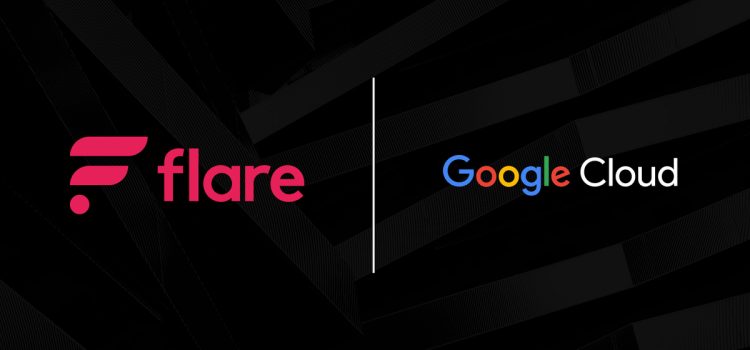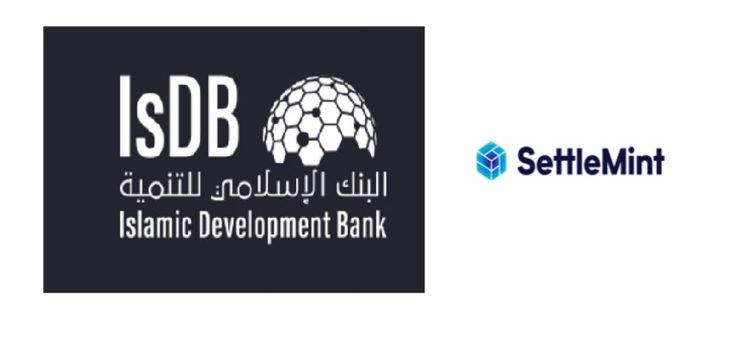
UAE Flare Blockchain is looking more like a torch these days. In the latest of a series of announcements, Flare, better known as the blockchain for data an EVM smart contract platform, has added Google Cloud as both a network validator and contributor to the Flare Time Series Oracle (FTSO) on the flare network.
So far Flare Blockchain has added 100 organizations as validators and contributors to the FTSO on Flare. These 100 Flare infrastructure providers support both the security of the Flare network as validators and contributers to the decentralized price oracle.
As a network validator, Google Cloud will be responsible for proposing and validating new blocks to the Flare blockchain, thereby supporting the chain’s proof of stake consensus mechanism.
The infrastructure provider role is critical for Flare’s mission to provide decentralized applications on both Flare and other chains with high quality access to decentralized data: price and time series data, blockchain event and state data, and Web2 API data.
For those who don’t know, Flare, the company aims to bring together low cost EVM smart contracts with decentralized data, while giving developers and users trustless access to the broadest range of data, with scalability, low latency, and at minimum cost. According to Flare, this is achieved by utilizing the validators of the network to provide decentralized data to applications as part of a decentralized native oracle system.
Hugo Philion, Co-Founder and CEO of Flare who is based in Dubai UAE, stated, “As the blockchain for data, we are excited that Google Cloud is joining our existing decentralized network of infrastructure providers who contribute to Flare. Our work together will help deliver a more robust decentralized smart contract platform that places decentralized data at its core.”
“Although much of the existing utility in the blockchain space comes from the nexus of decentralized computation with external data, existing oracle systems suffer from meaningful drawbacks: they are hard to decentralize, expensive to use, difficult to scale and have high latency.” Philion said about the challenges of the decentralization of data access, before explaining how Flare’s dual-role approach addresses the issue:
“Because Flare’s oracles are built into the structure of the network, we are the only smart contract platform optimized for decentralized data acquisition and are able to give developers all the data they need to build new, more relevant use cases beyond financial speculation.”
James Tromans, Head of Web3, Google Cloud stated: “Data access at scale is important to increase relevant blockchain use cases and greater global adoption of the technology. Google Cloud becoming a validator on the Flare network will help support that mission.”
Back in November Flare partnered with Elliptic, to integrate Elliptics transactions and wallet screening capabilities into the Flare network. The partnership also allowed organizations building decentralized apps on Flare with access to Elliptic’s real-time wallet and transaction screening tools to uncover any links to illicit actors.
As part of the integration, Elliptic’s monitoring, compliance, and analysis software would support FLR, the native asset of Flare. Financial institutions, businesses, and regulators as such could utilize these software tools to identify a full range of illicit activities, from small-scale fraud schemes and money laundering to sanctions evasion and terrorist financing.
Then Bitfrost wallet partnered with Flare to offer staking on Flare. As Bitfrost noted during the announcement, “ The introduction of staking on Flare Network is one of the many steps we are taking to ensure our users have easy access to the most advanced and secure crypto management tools in the market.”
Even Arkham intelligene platform for analyzing network data also decided to support Flare. Through the support, users of Flare have access to Arkham’s Intelligence Platform for analyzing network data, the Arkham Oracle for gaining actionable on-chain insights, and the Arkham Intel Exchange for bidding on and winning different Flare-related bounties and auctions. Arkham allows Flare users to maintain tabs on their portfolios and watch what the world’s best traders and investors are doing in real-time.
As if that was not enough, Flare partnered with Kinetic, a lending and borrowing platform, to bolster the development of decentralized finance (defi) applications on the Flare network. The collaboration aims to introduce lending and borrowing capabilities, deepen liquidity, and help build a robust defi ecosystem on Flare.
Under the partnership, Kinetic, backed by Rome Blockchain Labs, would provide a seamless platform for Flare users to participate in DeFi activities and earn block rewards using their supplied digital assets. The platform will also utilize Flare’s native price oracle, the Flare Time Series Oracle (FTSO), to ensure accurate and decentralized price feeds for lending and borrowing activities.
The Flare ecosystem by the end of 2023 boasted of over 150 partners. Among the notable contributors are Metropolis World, Pangolin, BlazeSwap, Uppercent, Covalent, SubQuery, Atriv, aiPX, Punk Domains, Ankr, Arkham, Flarescan, Subsquid, Web3Auth, Etherspot, and Elliptic. Today in 2024 with the addition of Google Cloud, Flare boasts of 100 validators.










